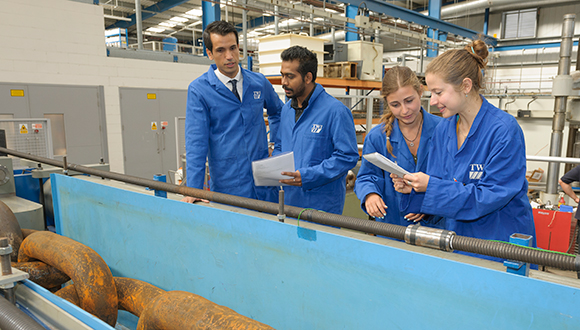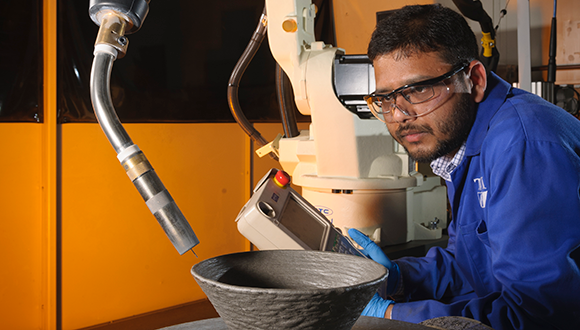Wed, 12 May, 2021
Doctoral thesis: what you need know for surviving the PhD viva experience
Going into your doctoral defence can be a very daunting experience. Online there are thousands of snippets of advice and it's hard to know which versions to trust.
So who better to ask and learn from, than former PhD students, now Doctors of Philosophy. The people that know exactly what a PhD oral defence is really like, and how to pass!
Viva meaning
A viva, or viva voce is an oral examination, that when translated stands from latin to English means 'orally' or more literally 'with the living voice'. They are a directed conversation with a group of university academics that is designed for PhD candidates to defend a thesis.
Before the coronavirus pandemic, is was expect that the thesis defense would take place in person, with internal and externals examiners (usually two of each). Once the session is completed, the panel of academics would then provide the candidate with a co-authored report that highlighted possible major or minor corrections to be completed.
As pandemic restrictions remain in place, PhD viva discussions have moved online using video call software such as Google Meets, Zoom or Microsoft Teams. However, as restrictions gradually begin to be lifted in the UK, many doctoral defences may return to in person formats by summer 2021.
How to prepare for your viva
To help you start a PhD Viva presentation and be best prepared, we asked PhD alumna of NSIRC (National Structural Integrity Research Centre) and the University of Nottingham, Dr Galatée Levadoux, and viva passing PhD student with NSIRC and Coventry University Karan Derekar, for their best advice on how to survive and pass your PhD viva...
Galatée and Karan both conducted their research projects from the NSIRC facility at TWI Ltd in Cambridge. All NSIRC students in Cambridge are also students of a University in the UK. Those include many top universities in the Times Higher Education Guide.
 Real advice that will help you reduce the stress of preparing for you PhD Viva defence
Real advice that will help you reduce the stress of preparing for you PhD Viva defence
Galatée Levadoux
How to answer PhD Viva questions: Be honest
When you don't know something, when you are not sure about a result, when you are asked why you did not do something, be plain and honest. The person in front of you is an expert who will know if you are lying, or trying to beat around the bush, and thus be harder on you for the rest of the viva.
A whole part of my thesis is based on shaky results I tried to interpret the best I could. When the jury asked me "are you sure of your results on page XXX?" I plainly answered, "No, I had a hard time trying to make sense of them. Do you think they are wrong?" which lead to a very interesting discussion.
Take notes to record possible viva corrections
Write the different remarks made during the oral defence on the corresponding pages of the thesis copy you brought with you: this not only shows the jury you're engaged and willing to correct your work but is also a lifesaver for future corrections. You'll thank yourself when the list of the official corrections is sent to you one month later and you cannot remember what it was all about!
Read papers by your external examiners
To read your thesis is important but also read a few articles written by your examiners: it will give you a better idea of what points they are likely to challenge you on. So while preparing for your viva, and thinking about typical viva questions, think also about research questions that you might get from your PhD defence committee members. Also read your thesis, just so it's fresh in your mind.
Check your ego at the door
Remember, an oral defence of your PhD thesis is not about being right or knowing everything. It's about explaining your work to experts and moving science forward. Accept minor corrections, don't take things personally and show you are engaged in the discussion rather than being defensive when challenged. Which leads to…
Brief answers can be dangerous
Giving monosyllabic answers will make you seem hostile or disengaged. The more you talk (staying on the topic of course!), the more you show you're willingness to engage, explain and go deeper in your subject, which at the end is what is expected of a research scientist.
 Galatée (right) along with fellow NSIRC and LRF PhD researcher at TWI in 2015. Photo: TWI Ltd
Galatée (right) along with fellow NSIRC and LRF PhD researcher at TWI in 2015. Photo: TWI Ltd
Karan Derekar
Know your examiner
It’s always advisable to have decent information about the examiner. The person could be one whose research you have already cited in your thesis. Examiner’s background, experience, area of interest and relevant publications can be easily found by accessing their profiles on Google Scholar, ResearchGate, LinkedIn, Scopus, and University or company websites.
An examiner’s recent publications can provide an idea about her or his area of interest, and older publications can give a hint of the topics that might be touched during your viva (of course in line with your research)!
Answering typical PhD viva questions
Many websites and forums are available listing common viva questions that can be asked during a PhD viva. These questions mainly focus on a basic understanding of your research and research field, such as explain your thesis in one sentence. During your research time, you might have come across such questions, but it is always beneficial to have these answers ready ahead of the final viva.
Be ready for unexpected questions
It often happens that students focus too much on their particular research topic and frequently overlook allied areas that might directly, or indirectly, influence their research outcomes. It could be as simple as the appropriateness of your thesis title to your research, use of another material or technique, the usefulness of research outcomes at a present time, economical aspects or weather conditions etc. Answering these questions may not be necessarily as important as answering core research questions, but it does show your broader perspective and thoughtfulness about the research you carried out.
Read your thesis thoroughly
It is necessary to know your thesis inside and out. Apart from all the main impactful results, you should be thorough with downsides and loopholes of your thesis/research outcomes. This can be how results are very sensitive to specific conditions or not having sufficient results for putting a certain idea forward. Answering these questions is critical; however, having well-prepared answers ahead of the viva can always be a smart rescue plan.
Feel confident enough to say "I don’t know"
There will be some questions that you may find difficult to answer. Most of the time, these questions are related to the application of research and future use. Or they are different from what your research and expertise are (but the examiner thinks they are relevant). At this time, feel free to say that you don’t know, rather than trying to impress the examiner with your wrong answer. If you are not confident about certain aspects, try not to linger on them. You could be in trouble.
Be polite and flexible
It is good for you to maintain a pleasant atmosphere throughout the viva period. Reduced tension will support your focused mind. Aggression while answering questions can add trouble. Be polite while disagreeing with an examiner. In a situation where examiner sticks to one point contracting yours, your flexible approach might help and will take things forward. It may also make for a more interesting and enjoyable discussion.
 Karan Derekar, NSIRC and Coventry University PhD researcher, now TWI Project Leader, specialising in additive manufacturing of aluminium alloy. Karan's research was supported by Lloyd's Register Foundation. Photo: TWI Ltd
Karan Derekar, NSIRC and Coventry University PhD researcher, now TWI Project Leader, specialising in additive manufacturing of aluminium alloy. Karan's research was supported by Lloyd's Register Foundation. Photo: TWI Ltd
....
Here are some more articles that you might like to read from NSIRC: